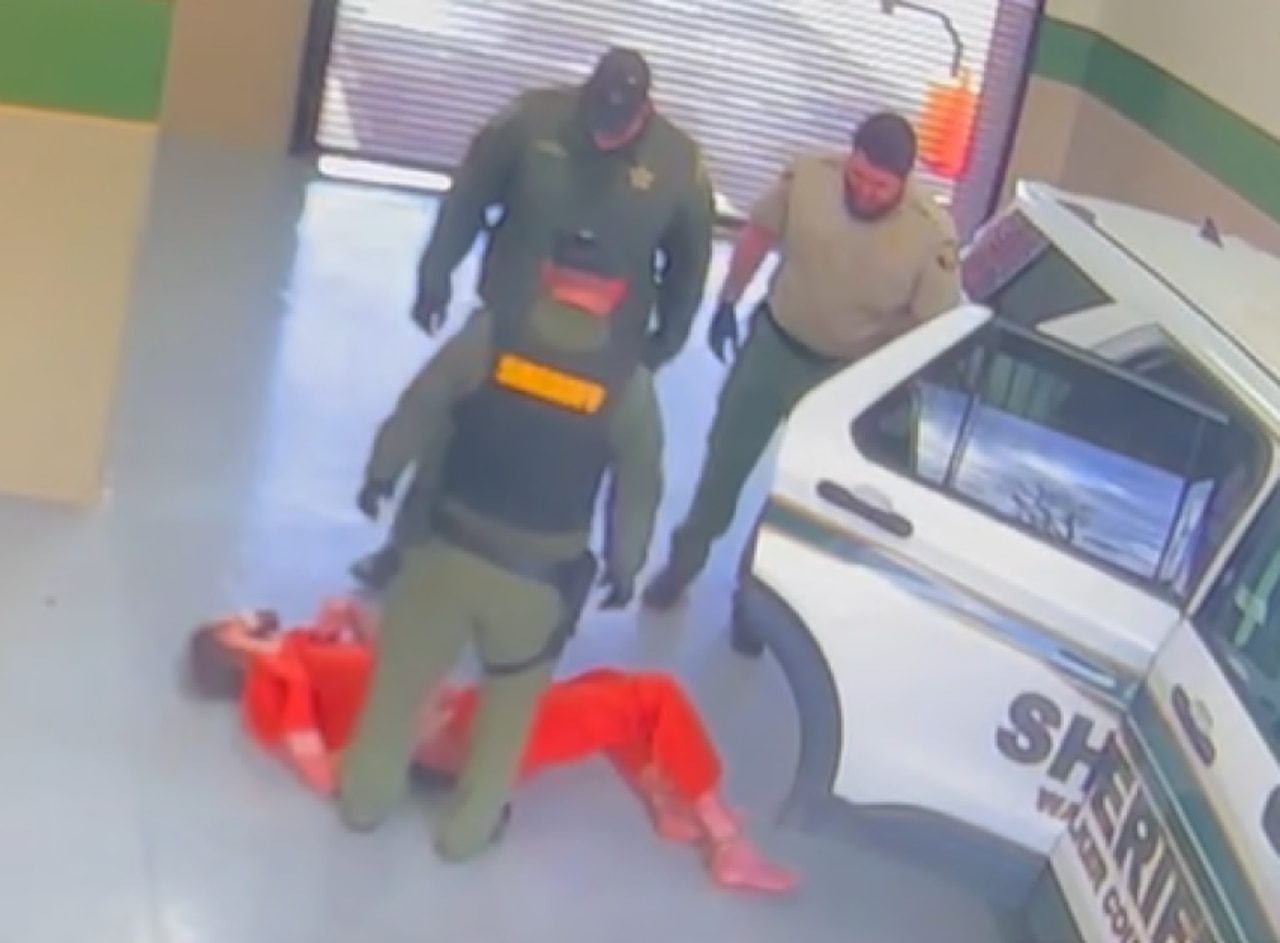If not held in a jail freezer, family asks how man died of hypothermia
Attorneys for an inmate who died after being held in the Walker County Jail are arguing for their right to claim in court that the cause of death was being restrained in a freezer or a similar frigid environment.
In a filing in federal court on Monday, attorneys for the estate of Tony Mitchell, 33, who died of hypothermia after spending two weeks in the jail, argued that their claim that Mitchell was placed in a freezer by jail staff is plausible, so it meets the legal standard to go forward.
Mitchell’s family sued the sheriff’s office and employees in February, claiming that deputies placed Mitchell in a restraint chair and locked him in a freezer. Attorneys for the sheriff’s office responded last week, telling the court that claims about Mitchell being held in a freezer are untrue, based on speculation and “the definition of scandalous.”
On Monday, attorneys for Mitchell’s estate, administered by his mother, Margaret Mitchell, argued that the claim was mischaracterized. They said the claim bout the freezer was not definite, but rather a likely possible explanation for Mitchell’s death and that a physician they interviewed for the case told them as much.
“If defendants had another means of bringing an inmates’ body temp. to 72 degrees or lower, plaintiff will uncover that during the discovery phase of this case,” the family’s lawyers argued on Monday in the latest exchange in a legal back and forth.
Mitchell was taken to the jail in Walker County on January 13 after he experienced a mental break. Mitchell had a longtime history of methamphetamine use and his mental health had declined in the months following his father’s death in the fall. Concerned about delusional statements he was making, Mitchell’s relatives called 911.
Deputies from the Sheriff’s department arrived and said that Mitchell ran off into the woods behind the house and fired a gun at them. When they arrested Mitchell, his face was spray-painted black.
Mitchell’s attorneys allege he was placed naked in an isolation room with no bed once he arrived in jail. Plaintiffs, in their motion to strike, dispute that Mitchell was left in the room naked.
Video footage shows officers tasing Mitchell as he stood, naked, in the doorway of a room and dragging him, on the floor, naked, across another room.
Defendants also argued in their suit that Mitchell’s false teeth were taken from him and that he had not eaten for days at the point at which he was placed in a freezer or another frigid environment. They allege that corrections officers waited hours to take Mitchell to the hospital after he was removed from the frigid environment.
Tony Mitchell being placed in a Walker County Sheriff’s Office vehicle. (Court filing)
At the time of his death at the Walker Baptist Medical Center, Mitchell’s body temperature was 72 degrees.
Attorneys for Sheriff Nick Smith and corrections officers on Friday had argued: “This case embodies the adage, ‘A lie is halfway around the world before the truth can put on its boots.’ Mitchell was never placed in a freezer.”
The sheriff’s lawyers did not suggest how Mitchell died. They argued that video evidence from the jail proves he was not placed in a freezer.
Attorneys for Mitchell argued in their response this week that they have not had enough time to access the full two weeks of video footage.
Attorneys for the sheriff initially argued that the case should be thrown out and the defendants should be sanctioned, made to pay attorneys’ fees, for filing the case, but later submitted a new filing without the demand for sanctions.
The sheriff’s lawyers asked the court to remove claims that officers failed to call 911 and failed to tell Mitchell’s doctors that he had been in a frigid environment, leading them to delay proper treatment for lack of understanding that Mitchell was experiencing hypothermia.
And they also asked the judge to remove a reference to the department having a policy or practice of covering up misconduct at the jail.
“Based on nothing but speculation, (the plaintiff) accuses the defendants of murdering… Mitchell by placing him in a freezer until he suffered and died from hypothermia and then accuse the defendants of covering up the murder.”
But the family pushed back on Monday.
“Defendants provide no authority for the proposition that it should be allowed to rewrite Plaintiff’s complaint to remove all allegations of intentional misconduct by Defendants,” reads the latest in the legal back and forth.
